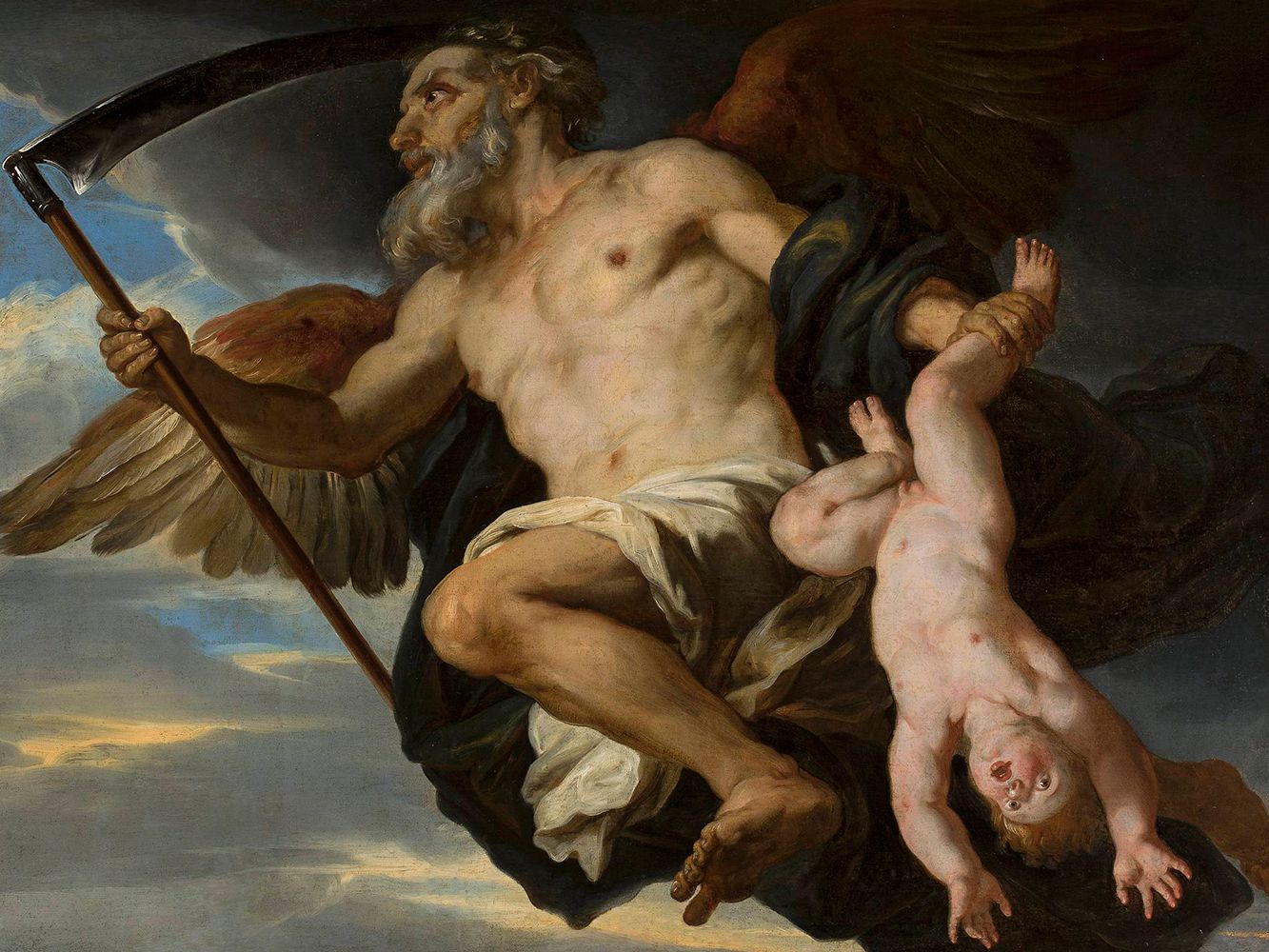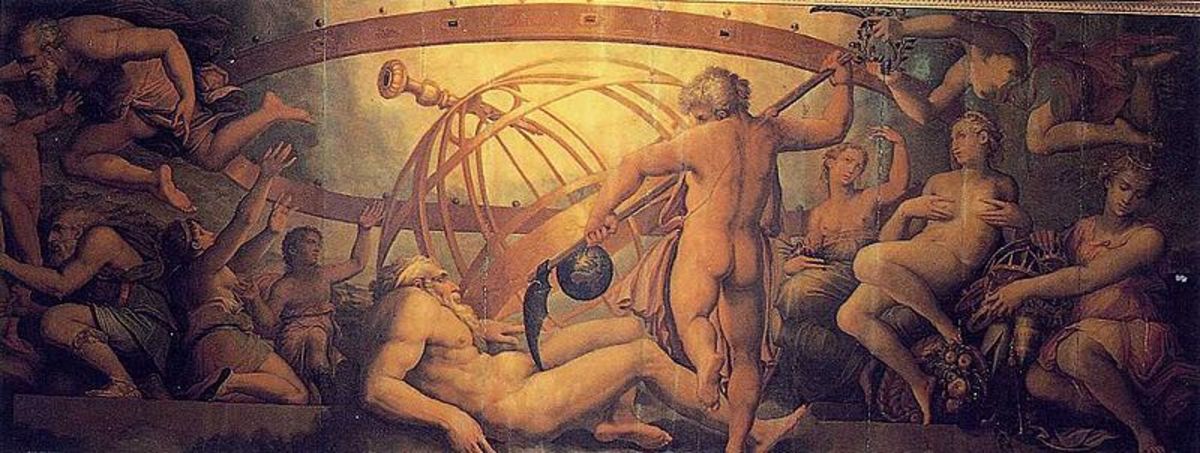Even though Kronos was not really worshipped by the later Greeks, he ruled over the universe in the Golden Age. Kronos is one of the twelve Titans that was born from Uranus and Gaia, the king and queen of the universe.
There is quite an intriguing story connected to Kronos and his rise to become the ruler of the universe. Kronos might have been an ancient Greek deity, but there are modern things named after him, such as the chronometer.
We take a closer look at the role he played in Greek mythology, so keep reading to find out what he did.

Table of Contents
Meaning Of Kronos
Kronos, a Greek word that originated from ancient Greek, means horn and is a name given to a boy. Kronos may also mean time and specifically the time of clocks and calendars or linear time, the same as the English word, Cronos.
The word chronometer that has to do with a device that keeps time comes from the name of Kronos.
The Titans
Kronos is one of the 12 Titans who were all children of Uranus and Gaia, of which Kronos was the youngest. Uranus hated his children and hid them in the Underworld, but Gaia, their mother, plotted with her children to overthrow their father, Uranus.
According to the legends, all the other Titans were too afraid of Uranus and did not want to take part in the plot. The only one who was willing to go against Uranus was Kronos, so he and his mother devised a plan to dethrone Uranus.
Kronos Rise To Power And Ruling Of the Universe
Kronos and Gaia planned an ambush on Uranus, so when Uranus came to visit Gaia, Kronos jumped him and castrated him. Kronos used an iron sickle that was made by Gaia, and this way, Uranus was dethroned and banished by Kronos.
Even though he was the youngest of the Titans, he was also the strongest, and after he dethroned his father, he became the ruler. He also got married to his sister Rhea, a goddess of the earth like her Mother, Gaia.
By the time Kronos became ruler of the universe, according to Greek mythology, humans were living during this time. This time of rulership by Kronos was called the Golden Age, where humans were not working the lands; they just lived and ate.
Everything was supplied by Kronos, so the humans had no land and did not grow any food yet lived in harmony and peace. So these humans lived as tribe animals with no society or art or any other things modern humans have.
Then Came the Gods
While Kronos was ruling the universe with Rhea, they had several children, but Kronos was afraid one of them would dethrone him. Kronos is pictured as quite an angry and paranoid Titan who feared that his own offspring would take away the throne from him.
That is also the reason why he devoured his children, who were also known in Greek mythology as the gods. He did not eat them by chewing on them but devoured them wholly, so they now lived inside his body.
This is why his youngest son Zeus, was able to rescue all his siblings from their father.
The Story Of His Downfall
Rhea was not happy with the turn of events, so when their youngest son, Zeus, was born, she tricked Kronos into eating a stone. This she did by putting a stone in the blanket where he thought his youngest child was wrapped in and devoured it.
Then she hid Zeus from Kronos, so when he was big enough, he returned and dethroned his father by castrating him as well. This is the way the gods, who were worshipped by the ancient Greeks, were rescued by Zeus, and Zeus became the ruler of the universe.
To see a detailed explanation of the life and history of ancient Greek mythology about Kronos, visit the following website. See the following YouTube video about Kronos, the king of the Titans, for some basic information.

Summary
While studying Kronos’ history and life, you will find that the Greeks did not really worship him. Their mythological gods started with Zeus and the other children of Kronos and Rhea, who became the ancient Greek gods.
The Titans were not worshipped at all, but they played an important role in the history of Greek mythology.
